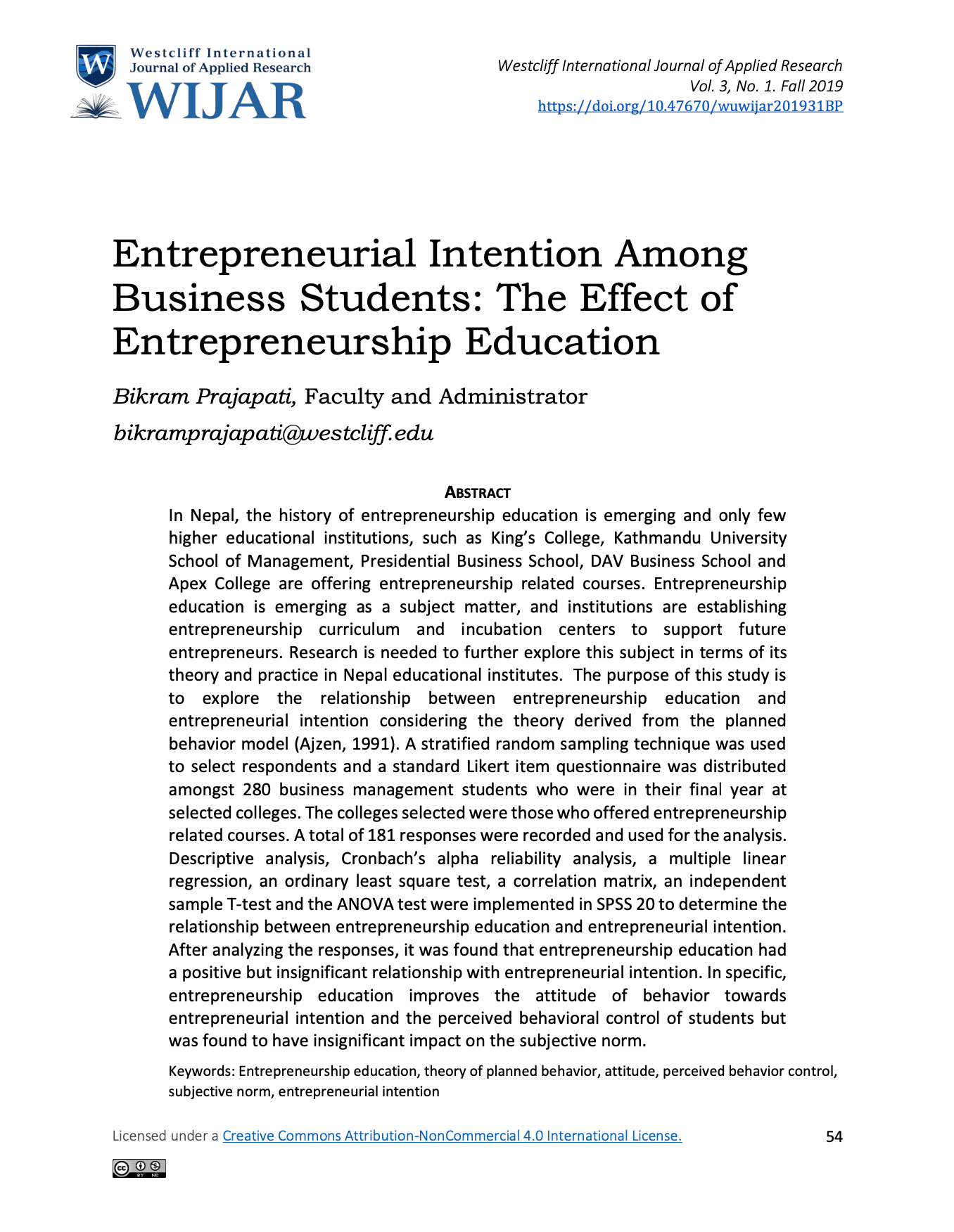Entrepreneurial Intention Among Business Students: The Effect of Entrepreneurship Education

Author: Bikram Prajapati
Issue: Fall Issue, 2019
Download ArticleAbstract
In Nepal, the history of entrepreneurship education is emerging and only few higher educational institutions, such as King’s College, Kathmandu University School of Management, Presidential Business School, DAV Business School and Apex College are offering entrepreneurship related courses. Entrepreneurship education is emerging as a subject matter, and institutions are establishing entrepreneurship curriculum and incubation centers to support future entrepreneurs. Research is needed to further explore this subject in terms of its theory and practice in Nepal educational institutes. The purpose of this study is to explore the relationship between entrepreneurship education and entrepreneurial intention considering the theory derived from the planned behavior model (Ajzen, 1991). A stratified random sampling technique was used to select respondents and a standard Likert item questionnaire was distributed amongst 280 business management students who were in their final year at selected colleges. The colleges selected were those who offered entrepreneurship related courses. A total of 181 responses were recorded and used for the analysis. Descriptive analysis, Cronbach’s alpha reliability analysis, a multiple linear regression, an ordinary least square test, a correlation matrix, an independent sample T-test and the ANOVA test were implemented in SPSS 20 to determine the relationship between entrepreneurship education and entrepreneurial intention. After analyzing the responses, it was found that entrepreneurship education had a positive but insignificant relationship with entrepreneurial intention. In specific, entrepreneurship education improves the attitude of behavior towards entrepreneurial intention and the perceived behavioral control of students but was found to have insignificant impact on the subjective norm.
